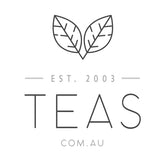Diet detective
Posted by BEV A

Healthy: Many teas packed with antioxidants
Tea is the most-consumed beverage worldwide next to water. And according to the Tea Association, Americans consumed more than 50 billion servings of tea in 2004, or more than 2.25 billion gallons. About 87 percent was black tea, 12.5 percent green tea, and the rest was oolong tea. Whether you’re a regular tea drinker or just starting out, here’s what you need to know about tea.
Although it’s hard to make a general comparison, a rough estimate suggests that two servings of tea equal one serving of your average antioxidant-packed veggie. Tea ranks among plants with the highest total flavonoid content. “The idea started from research completed by Dr. Ron Prior of the USDA, where he compared tea to many fruits and vegetables and found it to be higher in antioxidant components,” said Joe Simrany, the president of the Tea Association of the USA Inc.
Tea, by definition, is a leaf from the Camellia sinensis bush, said James A. Kinsinger of The Hain Celestial Group Inc. Only white tea comes from a different part of the plant than the others, while green, black and oolong are made from the upper leaves. To achieve a variety of tastes, the tea leaves are exposed to air, a process called fermentation. When fermentation is completely arrested, the tea stays green or yellowish brown. When fermentation time is long, the leaves darken and become black tea. Oolong tea is somewhere in between.
Regular vs. herbal tea
Hot-water infusions made from herbs are also called “teas,” but they are technically not teas because they are not from the Camellia sinensis plant. Herbal teas were originally brewed for medicinal purposes. Some herbal teas have health benefits, too, but often different ones from Camellia sinensis teas.
A 6-ounce cup of tea usually contains 25 to 60 milligrams of caffeine, less than the typical 100 milligrams in 6 ounces of coffee.
Green tea gets a lot of press for its health benefits, but all teas are beneficial, Kinsinger said. “Individual compounds in green tea have been tested in more detail than individual compounds in black tea, and there have been more studies on a wide variety of health issues with green tea … most with very positive results,” he said. Black tea has the most human studies, with very positive results. White tea is the least-studied, but it probably has more of the catechin antioxidants than either green or black tea.
A preliminary study at Oregon State University indicated that white tea may actually have more antioxidant power than green.
As for how much you should consume to get benefits, most studies are based on three to four cups, “but some scientists think that five or more cups a day are necessary,” Simrany said.
What about iced tea?
If brewed, iced tea (85 percent of tea consumed in America) has the same amount of antioxidants, catechins and flavonoids as hot tea. But instant iced tea contains negligible amounts of catechins.
By the way, sugar, sweeteners, milk and lemon do not appear to have any effect on the antioxidant levels of tea.
A few preliminary studies suggest that green tea may burn extra calories and oxidize fat, perhaps because of the compound epigallocatechin gallate (EGCG). One study found that green-tea extract increases metabolism and fat burning at a rate of almost 80 calories a day. Another recent study appearing in the American Journal of Clinical Nutrition demonstrated that tea containing 690 milligrams catechins significantly reduced body fat after 12 weeks.
More health benefits
The health benefits of drinking black or green tea include possible reduced risk for coronary heart disease, as well as gastric, breast, bladder, colon, rectal, esophageal and skin cancers. Tea and tea flavonoids have also been shown to help strengthen the body’s immune system, protect teeth by inhibiting plaque bacteria and potentially fight free radicals produced during strenuous exercise.
• Charles Stuart Platkin is a nutrition and public-health advocate, author of The Automatic Diet. Write to info@thedietdetective.com
(By Charles Stuart Platkin, Jan 2006, Winston-Salem Journal)
Article URL: http://www.journalnow.com/servlet/Satellite?pagename=WSJ%2FMGArticle%2FWSJ_BasicArticle&c=MGArticle&cid=1128769073615&path=!living&s=1037645509005
TAGS:
SHARE:

AUSTRALIA'S FINEST LOOSE LEAF TEAS
Explore Australia's largest selection of Premium Teas & All-Natural Organic Herbal Blends.

